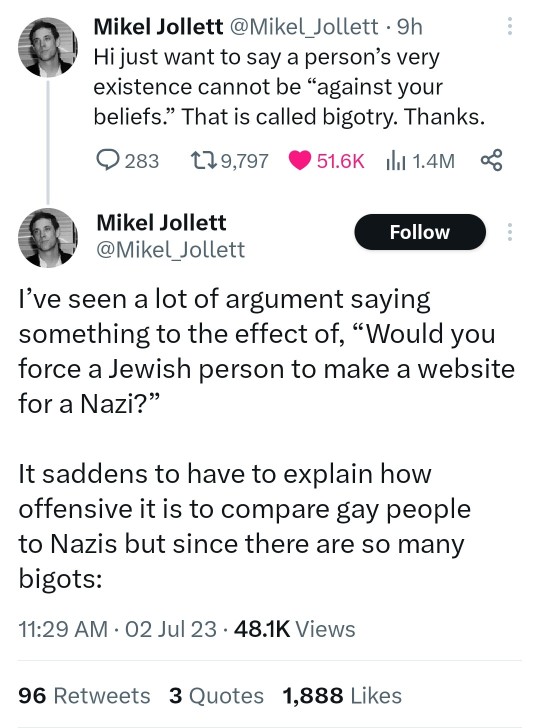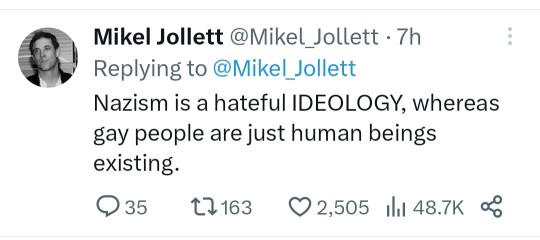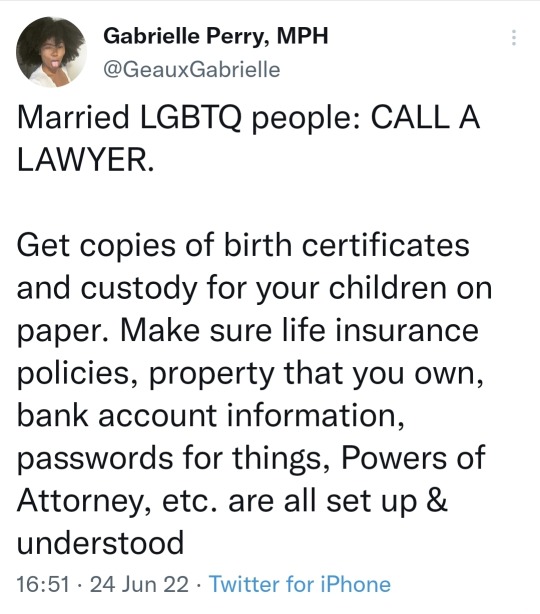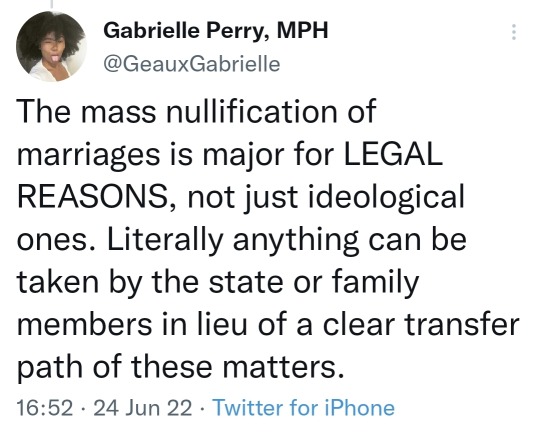#Scotus
Text


Source
So this feels important…
#politics#us politics#scotus#Supreme Court#news#current events#protest#public action#government#the left#progressive#important#direct action#activism
2K notes
·
View notes
Text
2024 The year of Scorned Women
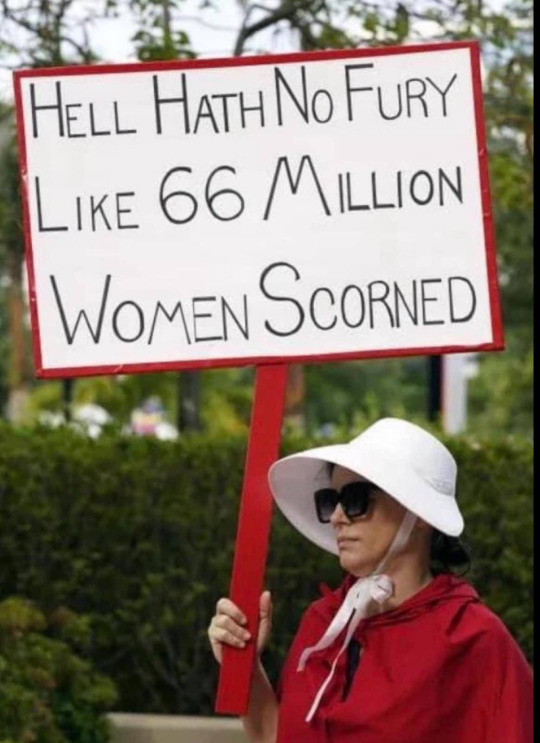
#democrats#republicans#donald trump#trumpchumps#doj#scotus#democracy#president joe biden#vp kamala harris#ali velshi
80 notes
·
View notes
Text
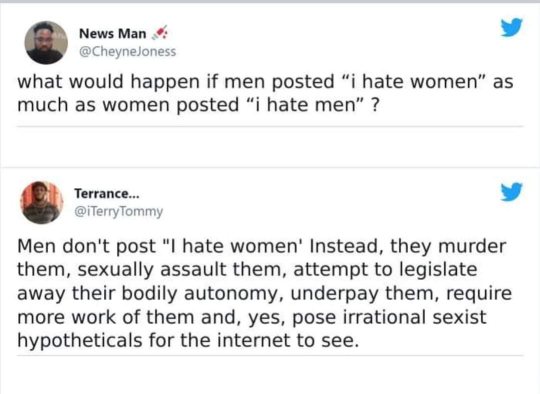
86 notes
·
View notes
Text
Ian Millhiser at Vox:
The Supreme Court will hear a case later this month that could make life drastically worse for homeless Americans. It also challenges one of the most foundational principles of American criminal law — the rule that someone may not be charged with a crime simply because of who they are.
Six years ago, a federal appeals court held that the Constitution “bars a city from prosecuting people criminally for sleeping outside on public property when those people have no home or other shelter to go to.” Under the United States Court of Appeals for the Ninth Circuit’s decision in Martin v. Boise, people without permanent shelter could no longer be arrested simply because they are homeless, at least in the nine western states presided over by the Ninth Circuit.
As my colleague Rachel Cohen wrote about a year ago, “much of the fight about how to address homelessness today is, at this point, a fight about Martin.” Dozens of court cases have cited this decision, including federal courts in Virginia, Ohio, Missouri, Florida, Texas, and New York — none of which are in the Ninth Circuit.
Some of the decisions applying Martin have led very prominent Democrats, and institutions led by Democrats, to call upon the Supreme Court to intervene. Both the city of San Francisco and California Gov. Gavin Newsom, for example, filed briefs in that Court complaining about a fairly recent decision that, the city’s brief claims, prevents it from clearing out encampments that “present often-intractable health, safety, and welfare challenges for both the City and the public at large.”
On April 22, the justices will hear oral arguments in City of Grants Pass v. Johnson, one of the many decisions applying Martin — and, at least according to many of its critics, expanding that decision.
Martin arose out of the Supreme Court’s decision in Robinson v. California (1962), which struck down a California law making it a crime to “be addicted to the use of narcotics.” Likening this law to one making “it a criminal offense for a person to be mentally ill, or a leper, or to be afflicted with a venereal disease,” the Court held that the law may not criminalize someone’s “status” as a person with addiction and must instead target some kind of criminal “act.”
Thus, a state may punish “a person for the use of narcotics, for their purchase, sale or possession, or for antisocial or disorderly behavior resulting from their administration.” But, absent any evidence that a suspect actually used illegal drugs within the state of California, the state could not punish someone simply for existing while addicted to a drug.
The Grants Pass case does not involve an explicit ban on existing while homeless, but the Ninth Circuit determined that the city of Grants Pass, Oregon, imposed such tight restrictions on anyone attempting to sleep outdoors that it amounted to an effective ban on being homeless within city limits.
There are very strong arguments that the Ninth Circuit’s Grants Pass decision went too far. As the Biden administration says in its brief to the justices, the Ninth Circuit’s opinion did not adequately distinguish between people facing “involuntary” homelessness and individuals who may have viable housing options. This error likely violates a federal civil procedure rule, which governs when multiple parties with similar legal claims can join together in the same lawsuit.
But the city, somewhat bizarrely, does not raise this error with the Supreme Court. Instead, the city spends the bulk of its brief challenging one of Robinson’s fundamental assumptions: that the Constitution’s ban on “cruel and unusual punishments” limits the government’s ability to “determine what conduct should be a crime.” So the Supreme Court could use this case as a vehicle to overrule Robinson.
That outcome is unlikely, but it would be catastrophic for civil liberties. If the law can criminalize status, rather than only acts, that would mean someone could be arrested for having a disease. A rich community might ban people who do not have a high enough income or net worth from entering it. A state could prohibit anyone with a felony conviction from entering its borders, even if that individual has already served their sentence. It could even potentially target thought crimes.
Imagine, for example, that an individual is suspected of being sexually attracted to children but has never acted on such urges. A state could potentially subject this individual to an intrusive police investigation of their own thoughts, based on the mere suspicion that they are a pedophile.
A more likely outcome, however, is that the Court will drastically roll back Martin or even repudiate it altogether. The Court has long warned that the judiciary is ill suited to solve many problems arising out of poverty. And the current slate of justices is more conservative than any Court since the 1930s.
[...]
The biggest problem with the Ninth Circuit’s decision, briefly explained
The Ninth Circuit determined that people are protected by Robinson only if they are “involuntarily homeless,” a term it defined to describe people who “do not ‘have access to adequate temporary shelter, whether because they have the means to pay for it or because it is realistically available to them for free.’” But, how, exactly, are Grants Pass police supposed to determine whether an individual they find wrapping themselves in a blanket on a park bench is “involuntarily homeless”?
For that matter, what exactly does the word “involuntarily” mean in this context? If a gay teenager runs away from home because his conservative religious parents abuse him and force him to attend conversion therapy sessions, is this teenager’s homelessness voluntary or involuntary? What about a woman who flees her violent husband? Or a person who is unable to keep a job after they become addicted to opioids that were originally prescribed to treat their medical condition?
Suppose that a homeless person could stay at a nearby shelter, but they refuse because another shelter resident violently assaulted them when they stayed there in the past? Or because a laptop that they need to find and keep work was stolen there? What if a mother is allowed to stay at a nearby shelter, but she must abandon her children to do so? What if she must abandon a beloved pet?
The point is that there is no clear line between voluntary and involuntary actions, and each of these questions would have to be litigated to determine whether Robinson applied to an individual’s very specific case. But that’s not what the Ninth Circuit did. Instead, it ruled that Grants Pass cannot enforce its ordinances against “involuntarily homeless” people as a class without doing the difficult work of determining who belongs to this class.
That’s not allowed. While the Federal Rules of Civil Procedure sometimes allow a court to provide relief to a class of individuals, courts may only do so when “there are questions of law or fact common to the class,” and when resolving the claims of a few members of the class would also resolve the entire group’s claims.
The Grants Pass v. Johnson case at SCOTUS could make life worse for unhoused Americans.
#Unhoused People#Homelessness#Grants Pass v. Johnson#SCOTUS#Crime#Martin v. Boise#9th Circuit Court#8th Amendment#Poverty#Grants Pass Oregon
17 notes
·
View notes
Text
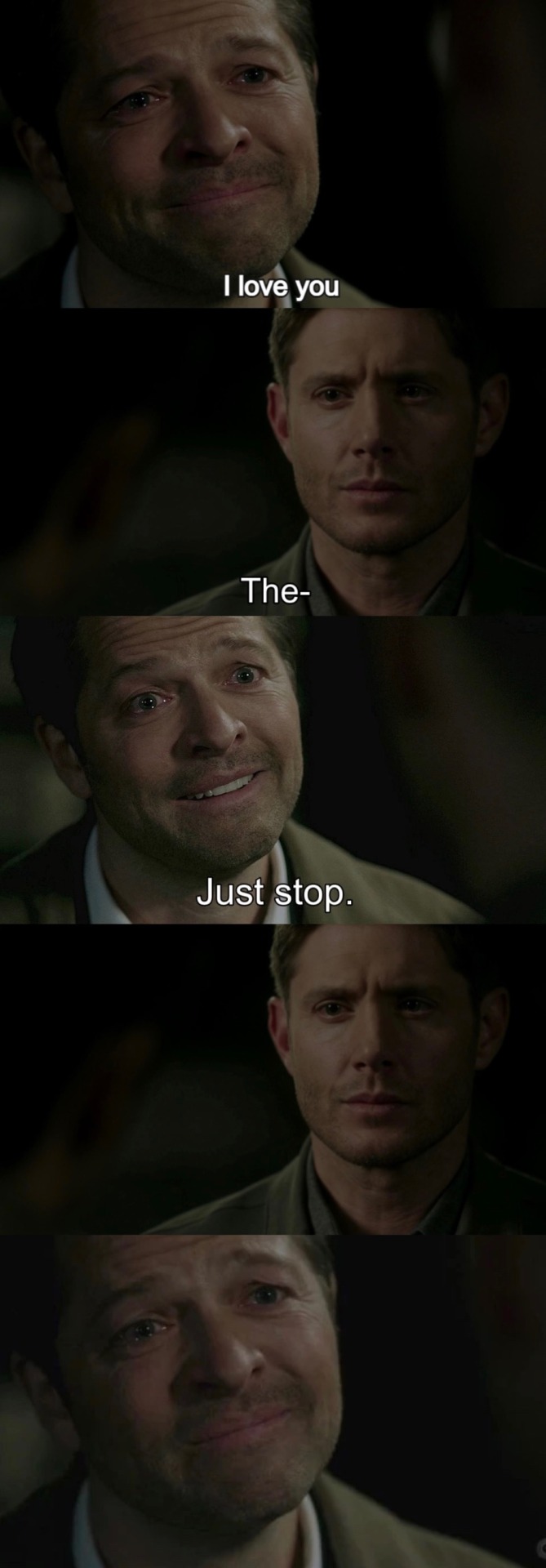
I don’t want to find out about world events anymore
#closing my eyes for the foreseeable future#supernatural#spn#destiel#oceangate#titanic#russia#scotus#hellsite#1k#5k#10k#20k#30k
37K notes
·
View notes
Text
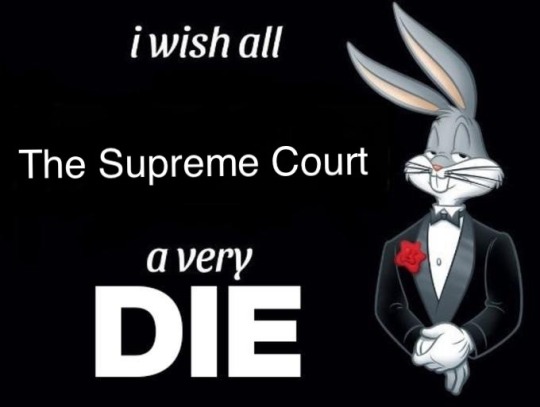
#the supreme court#roe v wade#roe versus wade#politics#scotus#obama#activism#human rights#abortion#reproductive rights#healthcare#feminism#women’s rights#meme#memes#*mypost
113K notes
·
View notes
Text
It all started with a mouse
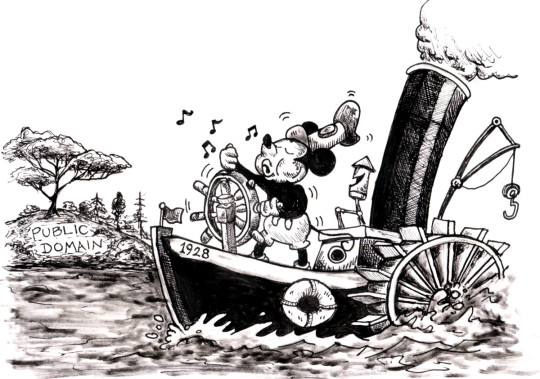
For the public domain, time stopped in 1998, when the Sonny Bono Copyright Act froze copyright expirations for 20 years. In 2019, time started again, with a massive crop of works from 1923 returning to the public domain, free for all to use and adapt:
https://web.law.duke.edu/cspd/publicdomainday/2019/
No one is better at conveying the power of the public domain than Jennifer Jenkins and James Boyle, who run the Duke Center for the Study of the Public Domain. For years leading up to 2019, the pair published an annual roundup of what we would have gotten from the public domain in a universe where the 1998 Act never passed. Since 2019, they've switched to celebrating what we're actually getting each year. Last year's was a banger:
https://pluralistic.net/2022/12/20/free-for-2023/#oy-canada
But while there's been moderate excitement at the publicdomainification of "Yes, We Have No Bananas," AA Milne's "Now We Are Six," and Sherlock Holmes, the main event that everyone's anticipated arrives on January 1, 2024, when Mickey Mouse enters the public domain.
The first appearance of Mickey Mouse was in 1928's Steamboat Willie. Disney was critical to the lobbying efforts that extended copyright in 1976 and again in 1998, so much so that the 1998 Act is sometimes called the Mickey Mouse Protection Act. Disney and its allies were so effective at securing these regulatory gifts that many people doubted that this day would ever come. Surely Disney would secure another retrospective copyright term extension before Jan 1, 2024. I had long arguments with comrades about this – people like Project Gutenberg founder Michael S Hart (RIP) were fatalistically certain the public domain would never come back.
But they were wrong. The public outrage over copyright term extensions came too late to stave off the slow-motion arson of the 1976 and 1998 Acts, but it was sufficient to keep a third extension away from the USA. Canada wasn't so lucky: Justin Trudeau let Trump bully him into taking 20 years' worth of works out of Canada's public domain in the revised NAFTA agreement, making swathes of works by living Canadian authors illegal at the stroke of a pen, in a gift to the distant descendants of long-dead foreign authors.
Now, with Mickey's liberation bare days away, there's a mounting sense of excitement and unease. Will Mickey actually be free? The answer is a resounding YES! (albeit with a few caveats). In a prelude to this year's public domain roundup, Jennifer Jenkins has published a full and delightful guide to The Mouse and IP from Jan 1 on:
https://web.law.duke.edu/cspd/mickey/
Disney loves the public domain. Its best-loved works, from The Sorcerer's Apprentice to Sleeping Beauty, Pinnocchio to The Little Mermaid, are gorgeous, thoughtful, and lively reworkings of material from the public domain. Disney loves the public domain – we just wish it would share.
Disney loves copyright's other flexibilities, too, like fair use. Walt told the papers that he took his inspiration for Steamboat Willie from Charlie Chaplin and Douglas Fairbanks, making fair use of their performances to imbue Mickey with his mischief and derring do. Disney loves fair use – we just wish it would share.
Disney loves copyright's limitations. Steamboat Willie was inspired by Buster Keaton's silent film Steamboat Bill (titles aren't copyrightable). Disney loves copyright's limitations – we just wish it would share.
As Jenkins writes, Disney's relationship to copyright is wildly contradictory. It's the poster child for the public domain's power as a source of inspiration for worthy (and profitable) new works. It's also the chief villain in the impoverishment and near-extinction of the public domain. Truly, every pirate wants to be an admiral.
Disney's reliance on – and sabotage of – the public domain is ironic. Jenkins compares it to "an oil company relying on solar power to run its rigs." Come January 1, Disney will have to share.
Now, if you've heard anything about this, you've probably been told that Mickey isn't really entering the public domain. Between trademark claims and later copyrightable elements of Mickey's design, Mickey's status will be too complex to understand. That's totally wrong.

Jenkins illustrates the relationship between these three elements in (what else) a Mickey-shaped Venn diagram. Topline: you can use all the elements of Mickey that are present in Steamboat Willie, along with some elements that were added later, provided that you make it clear that your work isn't affiliated with Disney.
Let's unpack that. The copyrightable status of a character used to be vague and complex, but several high-profile cases have brought clarity to the question. The big one is Les Klinger's case against the Arthur Conan Doyle estate over Sherlock Holmes. That case established that when a character appears in both public domain and copyrighted works, the character is in the public domain, and you are "free to copy story elements from the public domain works":
https://freesherlock.files.wordpress.com/2013/12/klinger-order-on-motion-for-summary-judgment-c.pdf
This case was appealed all the way to the Supreme Court, who declined to hear it. It's settled law.
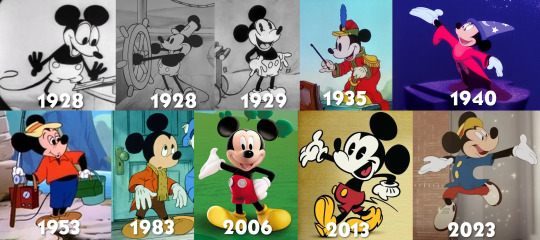
So, which parts of Mickey aren't going into the public domain? Elements that came later: white gloves, color. But that doesn't mean you can't add different gloves, or different colorways. The idea of a eyes with pupils is not copyrightable – only the specific eyes that Disney added.
Other later elements that don't qualify for copyright: a squeaky mouse voice, being adorable, doing jaunty dances, etc. These are all generic characteristics of cartoon mice, and they're free for you to use. Jenkins is more cautious on whether you can give your Mickey red shorts. She judges that "a single, bright, primary color for an article of clothing does not meet the copyrightability threshold" but without settled law, you might wanna change the colors.
But what about trademark? For years, Disney has included a clip from Steamboat Willie at the start of each of its films. Many observers characterized this as a bid to create a de facto perpetual copyright, by making Steamboat Willie inescapably associated with products from Disney, weaving an impassable web of trademark tripwires around it.
But trademark doesn't prevent you from using Steamboat Willie. It only prevents you from misleading consumers "into thinking your work is produced or sponsored by Disney." Trademarks don't expire so long as they're in use, but uses that don't create confusion are fair game under trademark.
Copyrights and trademarks can overlap. Mickey Mouse is a copyrighted character, but he's also an indicator that a product or service is associated with Disney. While Mickey's copyright expires in a couple weeks, his trademark doesn't. What happens to an out-of-copyright work that is still a trademark?
Luckily for us, this is also a thoroughly settled case. As in, this question was resolved in a unanimous 2000 Supreme Court ruling, Dastar v. Twentieth Century Fox. A live trademark does not extend an expired copyright. As the Supremes said:
[This would] create a species of mutant copyright law that limits the public’s federal right to copy and to use expired copyrights.
This elaborates on the Ninth Circuit's 1996 Maljack Prods v Goodtimes Home Video Corp:
[Trademark][ cannot be used to circumvent copyright law. If material covered by copyright law has passed into the public domain, it cannot then be protected by the Lanham Act without rendering the Copyright Act a nullity.
Despite what you might have heard, there is no ambiguity here. Copyrights can't be extended through trademark. Period. Unanimous Supreme Court Decision. Boom. End of story. Done.
But even so, there are trademark considerations in how you use Steamboat Willie after Jan 1, but these considerations are about protecting the public, not Disney shareholders. Your uses can't be misleading. People who buy or view your Steamboat Willie media or products have to be totally clear that your work comes from you, not Disney.

Avoiding confusion will be very hard for some uses, like plush toys, or short idents at the beginning of feature films. For most uses, though, a prominent disclaimer will suffice. The copyright page for my 2003 debut novel Down and Out in the Magic Kingdom contains this disclaimer:
This novel is a work of fiction, set in an imagined future. All the characters and events portrayed in this book, including the imagined future of the Magic Kingdom, are either fictitious or are used fictitiously. The Walt Disney Company has not authorized or endorsed this novel.
https://us.macmillan.com/books/9781250196385/downandoutinthemagickingdom
Here's the Ninth Circuit again:
When a public domain work is copied, along with its title, there is little likelihood of confusion when even the most minimal steps are taken to distinguish the publisher of the original from that of the copy. The public is receiving just what it believes it is receiving—the work with which the title has become associated. The public is not only unharmed, it is unconfused.
Trademark has many exceptions. The First Amendment protects your right to use trademarks in expressive ways, for example, to recreate famous paintings with Barbie dolls:
https://www.copyright.gov/fair-use/summaries/mattel-walkingmountain-9thcir2003.pdf
And then there's "nominative use": it's not a trademark violation to use a trademark to accurately describe a trademarked thing. "We fix iPhones" is not a trademark violation. Neither is 'Works with HP printers.' This goes double for "expressive" uses of trademarks in new works of art:
https://en.wikipedia.org/wiki/Rogers_v._Grimaldi
What about "dilution"? Trademark protects a small number of superbrands from uses that "impair the distinctiveness or harm the reputation of the famous mark, even when there is no consumer confusion." Jenkins says that the Mickey silhouette and the current Mickey character designs might be entitled to protection from dilution, but Steamboat Willie doesn't make the cut.
Jenkins closes with a celebration of the public domain's ability to inspire new works, like Disney's Three Musketeers, Disney's Christmas Carol, Disney's Beauty and the Beast, Disney's Around the World in 80 Days, Disney's Alice in Wonderland, Disney's Snow White, Disney's Hunchback of Notre Dame, Disney's Sleeping Beauty, Disney's Cinderella, Disney's Little Mermaid, Disney's Pinocchio, Disney's Huck Finn, Disney's Robin Hood, and Disney's Aladdin. These are some of the best-loved films of the past century, and made Disney a leading example of what talented, creative people can do with the public domain.
As of January 1, Disney will start to be an example of what talented, creative people give back to the public domain, joining Dickens, Dumas, Carroll, Verne, de Villeneuve, the Brothers Grimm, Twain, Hugo, Perrault and Collodi.
Public domain day is 17 days away. Creators of all kinds: start your engines!

If you'd like an essay-formatted version of this post to read or share, here's a link to it on pluralistic.net, my surveillance-free, ad-free, tracker-free blog:
https://pluralistic.net/2023/12/15/mouse-liberation-front/#free-mickey

Image:
Doo Lee (modified)
https://web.law.duke.edu/sites/default/files/images/centers/cspd/pdd2024/mickey/Steamboat-WIllie-Enters-Public-Domain.jpeg
CC BY 4.0
https://creativecommons.org/licenses/by/4.0/deed.en
#pluralistic#copyfight#scotus#mickey mouse#public domain#ip#contract#trademark#tm#jennifer jenkins#copyright#disney#nominative use
6K notes
·
View notes
Text
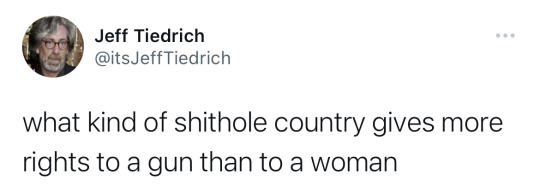
#women’s rights#can’t believe this is the world we live in now#activism#feminism#roe vs wade#roe versus wade#roe v wade#supreme court#scotus#politics#human rights#reproductive rights#american politics#america#healthcare#gun control#feminist#*posts
89K notes
·
View notes
Text

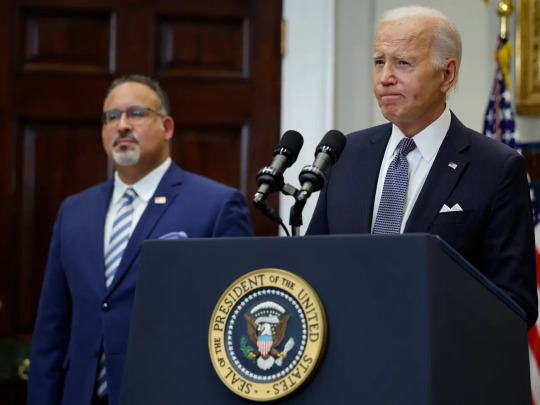
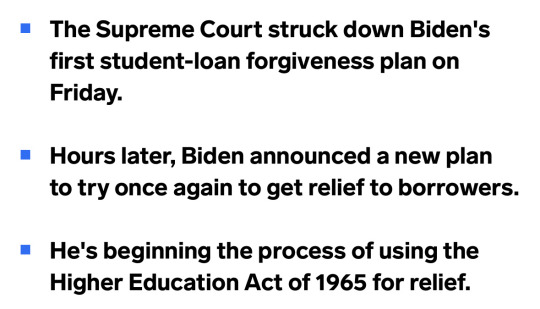
Source
All hope is not lost
#education#Joe Biden#student debt#scotus#Supreme Court#cancel student debt#politics#us politics#government#the left#progressive#current events#news
24K notes
·
View notes
Text
You got conned, that’s the part making maga deplorables so angry

#democrats#republicans#donald trump#trumpchumps#doj#scotus#president joe biden#vp kamala harris#ali velshi
44 notes
·
View notes
Text
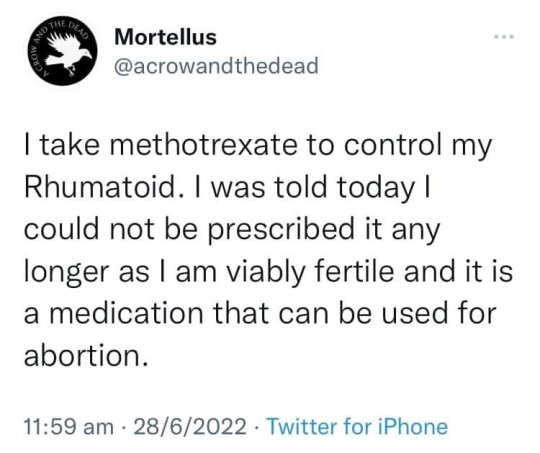
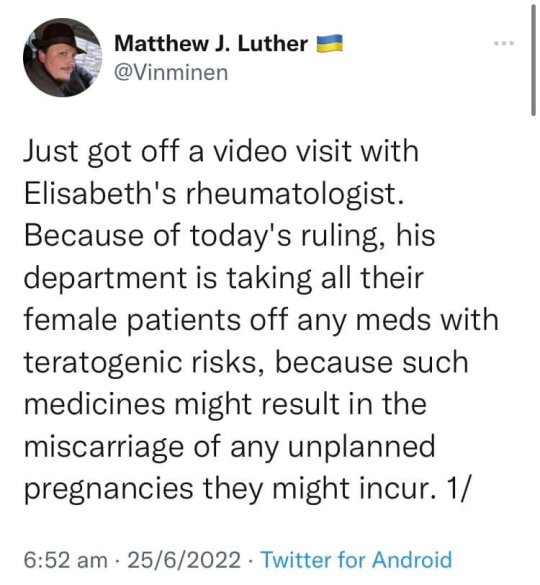
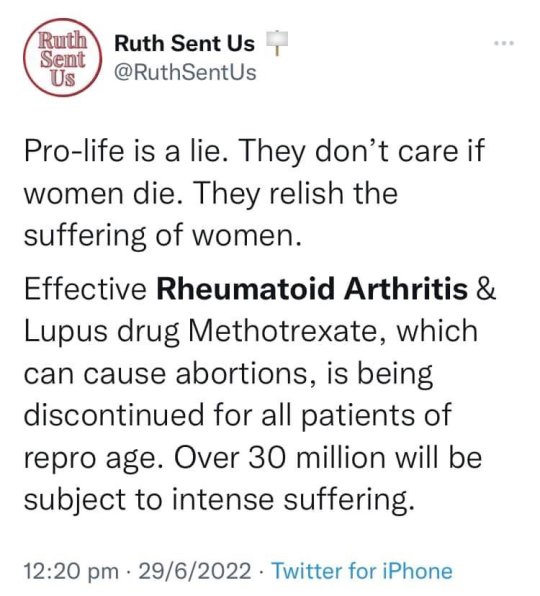
69K notes
·
View notes
Text
The dismantling of Roe v Wade will go down in history as one of the most damning indictments of american politics and a public health decision, no matter how short or long lived, that will shape the pain and suffering of generations to come.
#be. angry.#my mouth literally dried when the news broke. what the fuck#roe v wade#abortion#america#supreme court#scotus#reproductive rights#pro choice
57K notes
·
View notes
Text
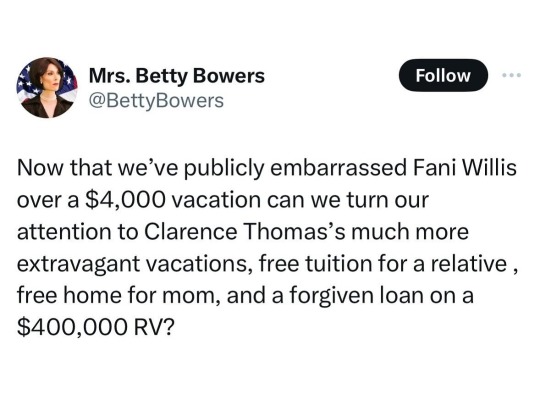
Clarence Thomas can take millions in paid vacations and gifts from donors with cases before SCOTUS and Federalist Society folks will smile with pride in their corrupt creation.
2K notes
·
View notes


